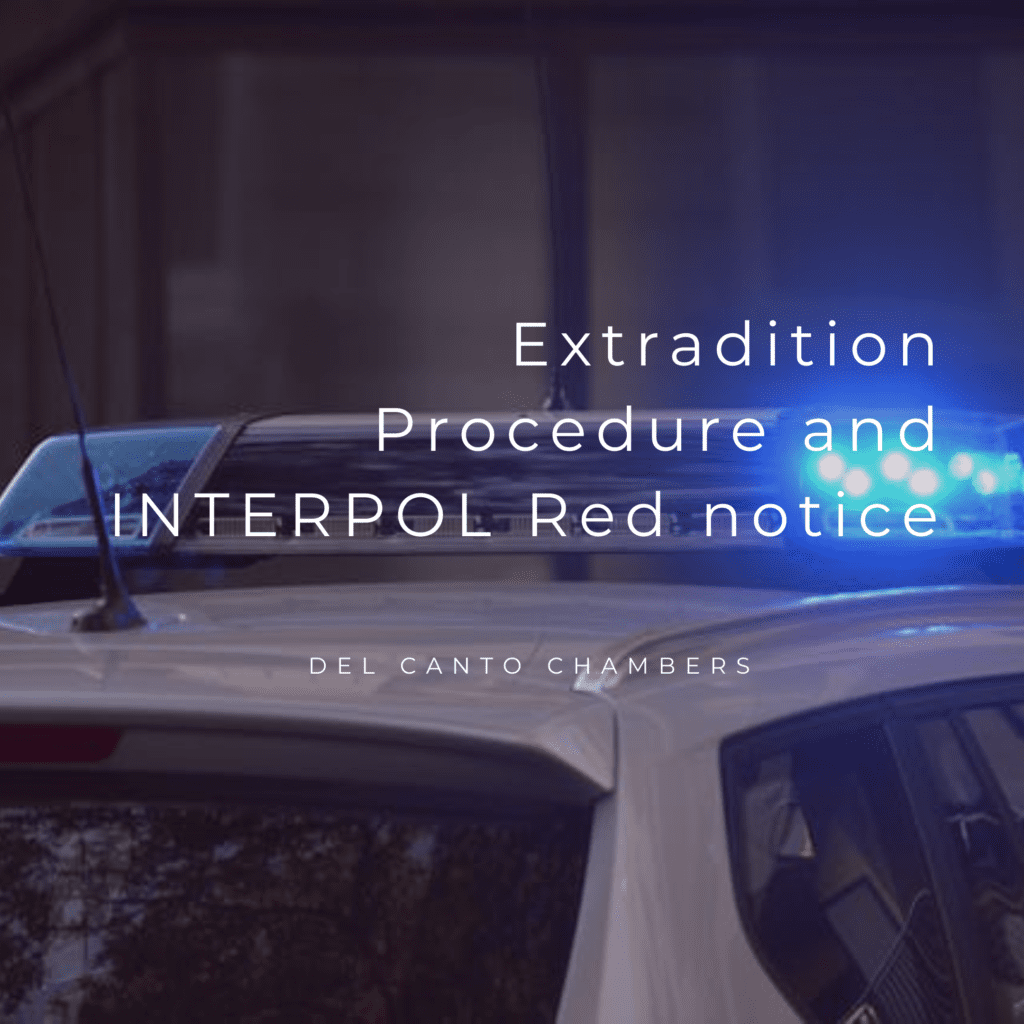What is INTERPOL?
Extradition Procedure and INTERPOL Red notice. The International Criminal Police Organization is an inter-governmental organisation with 196 member countries. It connects police from all these countries and provides a platform where they can cooperate, even when there are no diplomatic relations between them.
Red notice
INTERPOL defines red notice as “a request to law enforcement worldwide to locate and provisionally arrest a person pending extradition, surrender, or similar legal action.” This notice contains information containing the identification of the wanted person and related to the crime they are wanted for.
This red notice will alert police in INTERPOL member countries. Each country will decide what is the following step, depending on their internal legislation and procedures. They can eventually proceed to the arrest of the wanted person.
Red notice issued by Russia
As a member of the INTERPOL organisation, Russia can issue a red notice that will be sent to the other members of the organisation.
Following the conflict in Ukraine, the majority of the European air space has been closed for Russian flights, making it almost impossible to carry out any extradition with Russia. This situation does not exclude the possibility of facing the legal procedure related with an extradition process if there is a red notice issued from Russia.
This means the conflict has not interrupted the possibility of Russia using a red notice in order to extradite a person.
Extradition Procedure
The extradition procedure may differ depending on the country where the red notice is received. Not only taking into account the internal law in that jurisdiction but also the International Agreements which have been accepted by that country.
In the European context two main regulations can be highlighted. On one hand the European Arrest Warrant will be applied in the countries that have incorporated the Decision in that respect, always in the context of the European Union. On the other hand, the European Convention on Extradition will be applicable in countries inside and outside the European Continent that have introduced the Convention in their legal framework.
The European Convention on Extradition sets some principles that will apply in this type of procedures. Among others:
- The Double Criminality Principle: The suspect will only be extradited from one country for breaking a second country’s law only if a similar law exists in the first country.
- Lapse of time: Extradition shall not be granted when the person claimed has, according to the law of either the requesting or the requested Party, become immune by reason of lapse of time from prosecution or punishment.
- The extradition won’t be granted when the offence for which extradition is requested is punishable by death under the law of the requesting Party, unless the requesting Party gives such assurance as the requested Party considers sufficient that the death-penalty will not be carried out.
These principles and rules set in this Convention will be combined with the legislation of each of the countries involved in an extradition procedure.
The red notice will still be active, even after going through the extradition procedure in one country. This means that even if the extradition has not been granted by one country, after travelling to a different country the extradition process may be activated again in this other country.
To avoid this situation it is required to remove the red notice with INTERPOL. Red notices can be challenged following the Rules on the Processing of Data (“RPD”) and Interpol’s Constitution. This is relevant especially in cases where Human Rights or political persecution are involved.
Spain’s Passive Extradition
When a red notice is received in Spain, this information will be provided to the Spanish authorities. Then the Central Investigating Court (Juzgado Central de Instrucción) will decide on the detention of the person requested for extradition based on grounds of urgency or the possibility of flight.
After this first phase the process will go through several phases. This includes a first governmental phase, a judicial phase and a political decision on the extradition, which will be decided by the Council of Ministries according to principles like reciprocity.
The main legal framework will revolve around the 4/1985 Act on Passive Extradition (Ley 4/1985, de 21 de marzo, de Extradición Pasiva). Other relevant legislation are Title VI, articles 824 to 833 of the Criminal Procedure Law (LECRIM) and articles 23.4, 23.5, 65 and 88 of “Ley Orgánica del Poder Judicial”.
How can we help?
Extradition procedures are complex and require legal advice. This process involves knowledge on multiple jurisdictions and international law as well as understanding INTERPOL procedures.
Del Canto Chambers has been advising clients on these procedures, closely following international law and applicable criminal law. Providing a careful approach to every state of the process, including communication with lawyers in different jurisdictions and managing INTERPOL procedures.
Written by Alvaro Pérez, Legal Trainee at Del Canto Chambers





